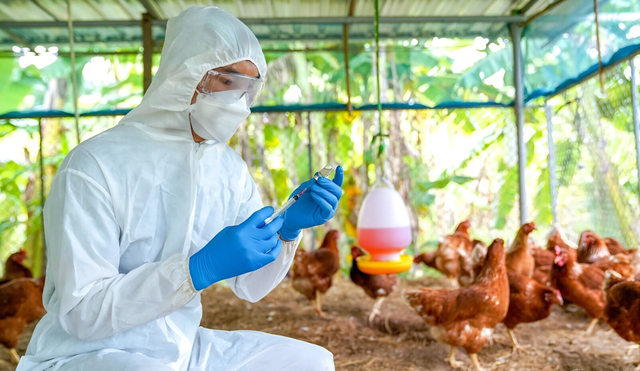USDA grants conditional license for Zoetis' avian influenza vaccine amid ongoing H5N1 outbreak
The USDA has granted a conditional license to Zoetis for its H5N2 avian influenza vaccine, aiming to combat the H5N1 outbreak that has affected over 150 million birds in the U.S. since 2022.

In a significant move to combat the ongoing H5N1 avian influenza outbreak, the U.S. Department of Agriculture (USDA) has granted a conditional license to Zoetis for its Avian Influenza Vaccine, H5N2 Subtype, Killed Virus, specifically designed for chickens. This decision comes as the highly pathogenic avian influenza has affected over 150 million birds across the United States since February 2022, leading to substantial economic losses in the poultry industry.
The conditional license was issued by the USDA's Center for Veterinary Biologics (CVB) after Zoetis demonstrated the vaccine's safety, purity and a reasonable expectation of efficacy based on serological data. This authorization allows for the limited use of the vaccine under specific circumstances, aiming to provide an additional tool for poultry producers in managing the spread of the virus.
Zoetis' response to the avian influenza crisis in the U.S.
Upon identifying the new strain of highly pathogenic avian influenza in early 2022, Zoetis promptly initiated efforts to update its existing avian influenza vaccine. Doctor Mahesh Kumar, Senior Vice President of Global Biologics Research and Development at Zoetis, stated, "Our readiness with this most recent vaccine is another example of how we continue to live our purpose to nurture the world and humankind by advancing care for animals."
Zoetis has a history of developing avian influenza vaccines, including a conditional license received in 2016 for an H5N1 vaccine used to protect California condors in 2023. The company's proactive approach underscores its commitment to addressing global animal health challenges through innovative solutions.
Which are the implications for the poultry industry?
The decision to vaccinate commercial poultry flocks rests with national regulatory authorities in collaboration with the poultry industry. While vaccination offers a potential method to control the spread of avian influenza, it also raises considerations regarding trade and surveillance. Some countries have previously imposed restrictions on imports from nations that vaccinate their poultry, due to concerns about differentiating between infected and vaccinated birds. Therefore, the implementation of a vaccination program requires careful deliberation to balance disease control with economic and trade implications.

US gives conditional nod to Zoetis' bird flu vaccine for poultry. Photo: PM360 Composition.
The H5N1 avian influenza outbreak has had a profound impact not only in the United States but also globally. In France, a nationwide bird flu vaccination campaign launched in 2023 has enabled the country's poultry production to recover to levels not seen since outbreaks of the virus had previously decimated flocks.
The USDA's conditional approval of Zoetis' vaccine represents a proactive step in exploring vaccination as a viable strategy to mitigate the impact of avian influenza. As the situation evolves, continued collaboration between regulatory bodies, industry stakeholders and scientific communities will be essential in refining and implementing effective measures to protect both animal and public health.












